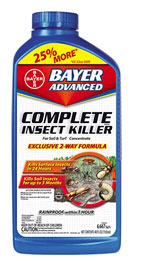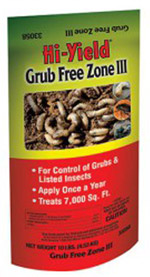Water
As the possibility of tropical weather approaches, continue to monitor how much water your garden is getting. If we do get significant rain- turn off your irrigation system, if it isn’t already. In addition, don’t forget to empty any standing water in your garden and flush out your bird baths and bromeliads every week to avoid mosquito populations.
Florida Friendly Landscaping*

The University of Florida “Florida-Friendly Landscaping” intent is to use resource-efficient plants and sustainable maintenance practices to conserve water and reduce negative impacts on water bodies and wildlife habitats”. Essentially that boils down to “right plant, right place”, which means choosing resource-efficient plants (those that require less water, pesticides and fertilizer) that will grow and remain healthy with minimal care under the site conditions.
Florida Friendly Principles include:
• Choose the right plant for the right place
• Reduce turf to a small but functional area and replace large turf areas with low, spreading groundcover or plants
• Plant trees for shade on the east, west and south side of the house
• Shade the AC unit with a tree
• Direct water flow in the yard and use plants to catch and filter rainwater before it flows into water bodies or the storm water system.
• Use plants to attract wildlife
• Specialty gardens such as butterfly gardens can be created by grouping plants to provide food and shelter
• Incorporate mulched areas, gravel areas, pathways and patios in the yard to provide access and organization.
Being Florida Friendly does not necessarily mean using only native Florida plants either. There are many Florida Friendly plants that are not native. Essentially, trying to have a Florida Friendly yard is landscaping so the plants do not require excessive maintenance, care or water. Also, Florida Friendly gardening is protecting our natural water sources from any runoff or allowing fertilizers or chemicals to leach into our water systems.
*See University of Florida- Florida Friendly Landscaping for more information.
The best advice we can give all our new customers and all of our existing customers- ask a lot of questions and plan at the outset of any new garden and you will be successful! We at VerdeGo will be happy to answer your questions honestly and correctly.
Remember, “Gardening is a way of showing you believe in tomorrow!” Happy Planting!
September Lawn Care
St Augustine and Zoysia
F-Stop

A granular product that contains Eagle® fungicide that provides a systemic protectant and curative fungicide. 8 lb bag covers Up to 2,666 square feet During the warm, rainy months protects your lawn from:
• Anthracnose
• Red Thread
• Septoria Leaf Spot
• Brown Patch
• Copper Spot
• Dollar Spot
• Fusarium Blight
• Leaf Spot
• Melting Out
• Crown Rot
• Leaf Smuts
• Necrotic Ring Spot
• Powdery Mildew
• Rust
• Summer Patch
• Take-All Patch
• Zoysia Large Patch
Chinch Bug Killer

(If you didn’t apply last month and see chinch bug damage apply now)
Bayer Complete:

• Kills listed surface insects in 24 hours
• Kills soil insects for up to 3 months
• Kills the most common lawn pests, including: Ants, Fleas, Ticks, European Crane Fly Larvae, Grubs, Mole Crickets and other listed insects
• Can be used as an outdoor barrier treatment
• 10 lb. bag treats up to 10,000 sq. ft.
• 20 lb. bag treats up to 20,000 sq. ft.
• Actives: 0.05% ?-cyfluthrin; 0.15% Imidacloprid (Granules)
• Actives: 0.36% ?-cyfluthrin; 0.72% Imidacloprid (Ready-To-Spray and Concentrate)
OR
Grub Free Zone III:

• Active Ingredient: imidacloprid
• Hi Yield Grub Free Zone III is for use on turf grass in home lawns to control soil inhabiting pests. Can be used for the suppression of cutworms and chinch bugs as well.
• Irrigate after putting down.
• 10Lbs covers 7000 sq ft.
• One of the most important products for your lawn
• Kills insects before they damage your lawn
• Chinch bug activity occurs March through November
• 3-4 Generations with overlapping life stages develop each year
Control has become increasingly difficult because chinch bugs in some areas have developed high levels of resistance to commonly used pyrethroid insecticides. For this reason- it is recommended that you alternate products.